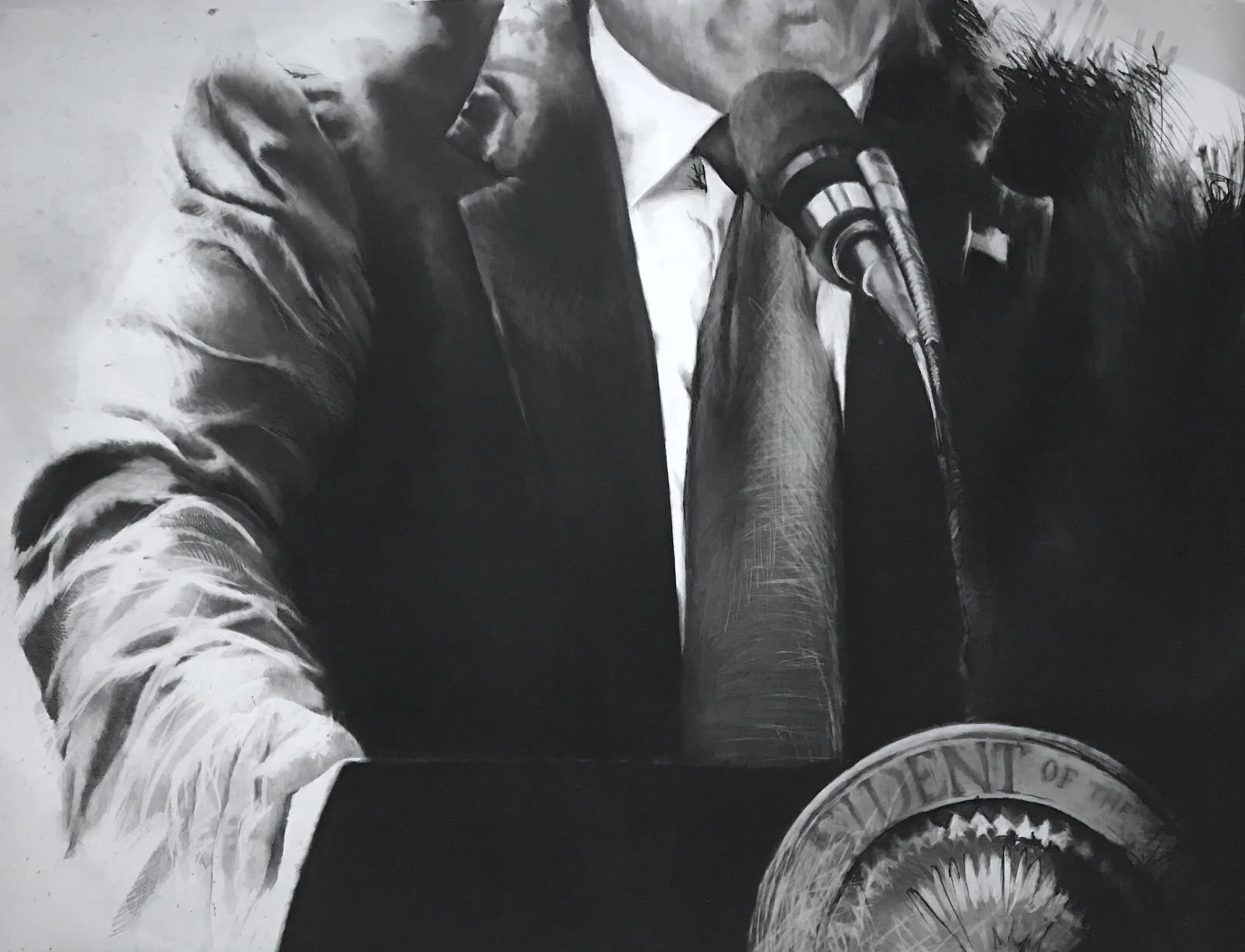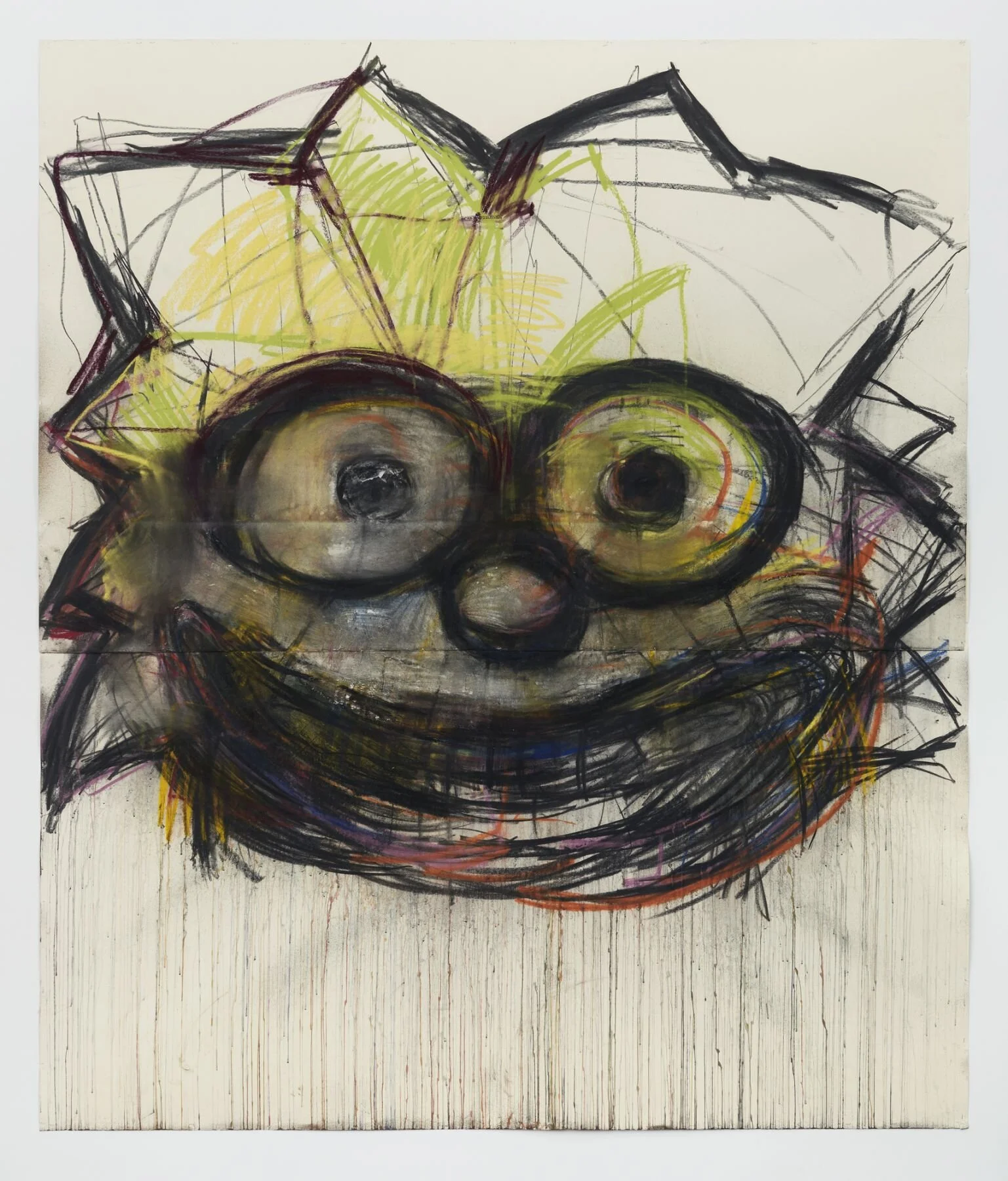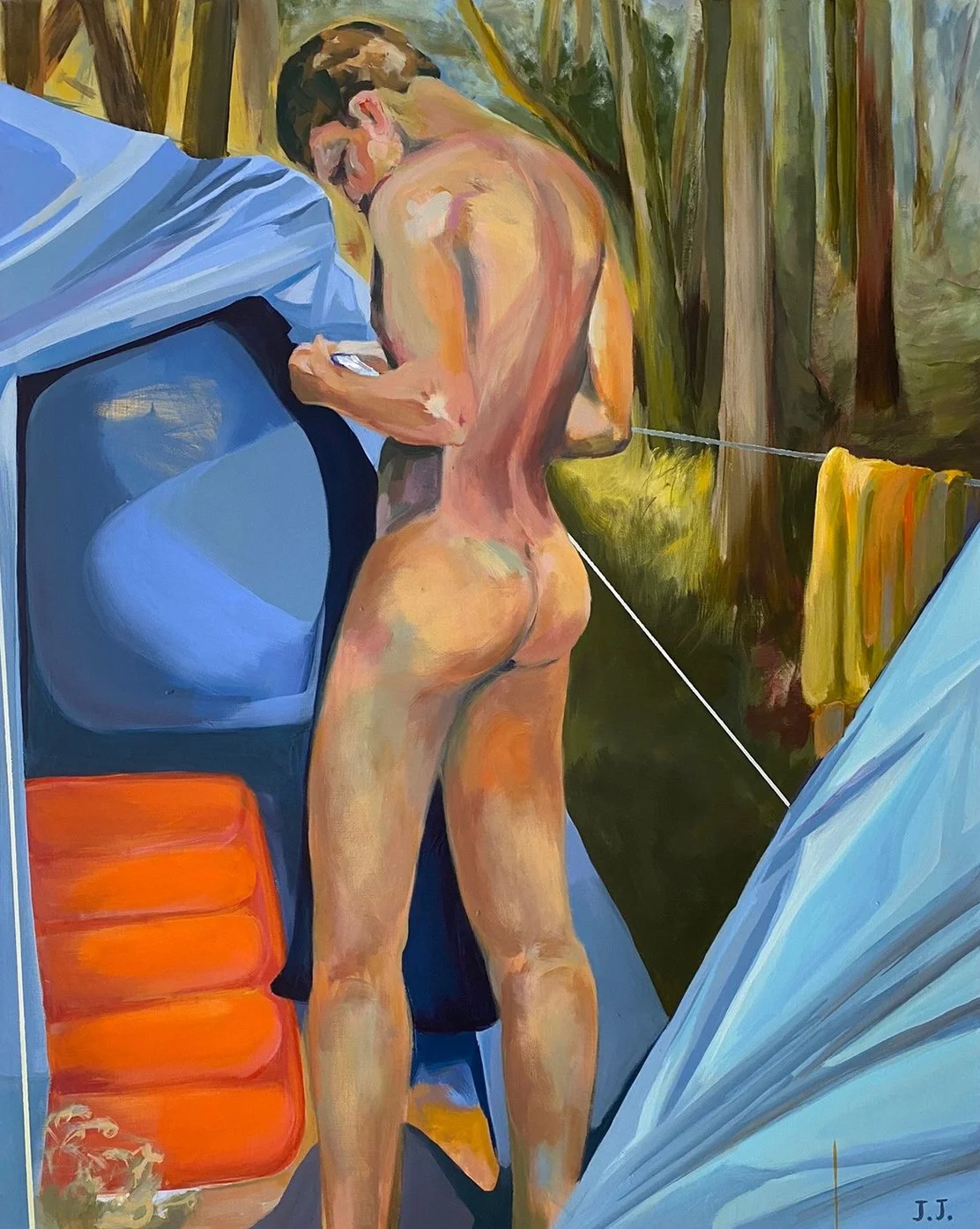Melanie Baker
“The Optimates”
New York, 219 Bowery, Floor 2
The Optimates presents four distinct scenes: two separate men stand at podiums; a man, seen from behind, speaks to someone unknown; and a group of men huddle in conversation at a window. The works are large in scale; some exceed life-size. All are made with charcoal, graphite and pigment on paper. Two are mounted on panels, and the other two are presented loose, pinned to the wall.
Baker crops her images to draw attention to specific details. The way a hand grips a podium in Sixteen Words, the overgrown haircut in Pomp and Sycophants, and the framing of Assembly of Elders around an illuminated cross in the window all stand out as a result of Baker’s careful composition. It isn’t immediately apparent in every work who the subject is, but signifiers indicate the immense power the subject wields. They wear dark suits and crisp white shirts, and several are pictured in richly adorned rooms. These are the people, we are meant to intuit, who possess wealth, class, and authority. They are also, clearly, all middle-aged or older white men, and Baker provides just enough context clues to suggest that they are either the focus of attention, or the ones cutting the back room deal. The exhibition title is a further nod to their status; the Optimates in ancient Rome were conservatives who favored rule by oligarchy and opposed immigration and assistance for the urban poor.
Although Baker presents these men as anonymous, her works are based on actual photos of real politicians: Presidents, senators, and others from both sides of the aisle make appearances. Their facelessness is a comment on the mutability of their identities. Political movements rise and fall, and regimes change; but the symbols of power—and the institutions that concentrate that power in the hands of a few—remain the same. In this respect, the dark outlook offered by The Optimates is echoed by Baker’s flat, depthless expanses of matte black charcoal. Power has infinite potential to corrupt—regardless of the subject.






